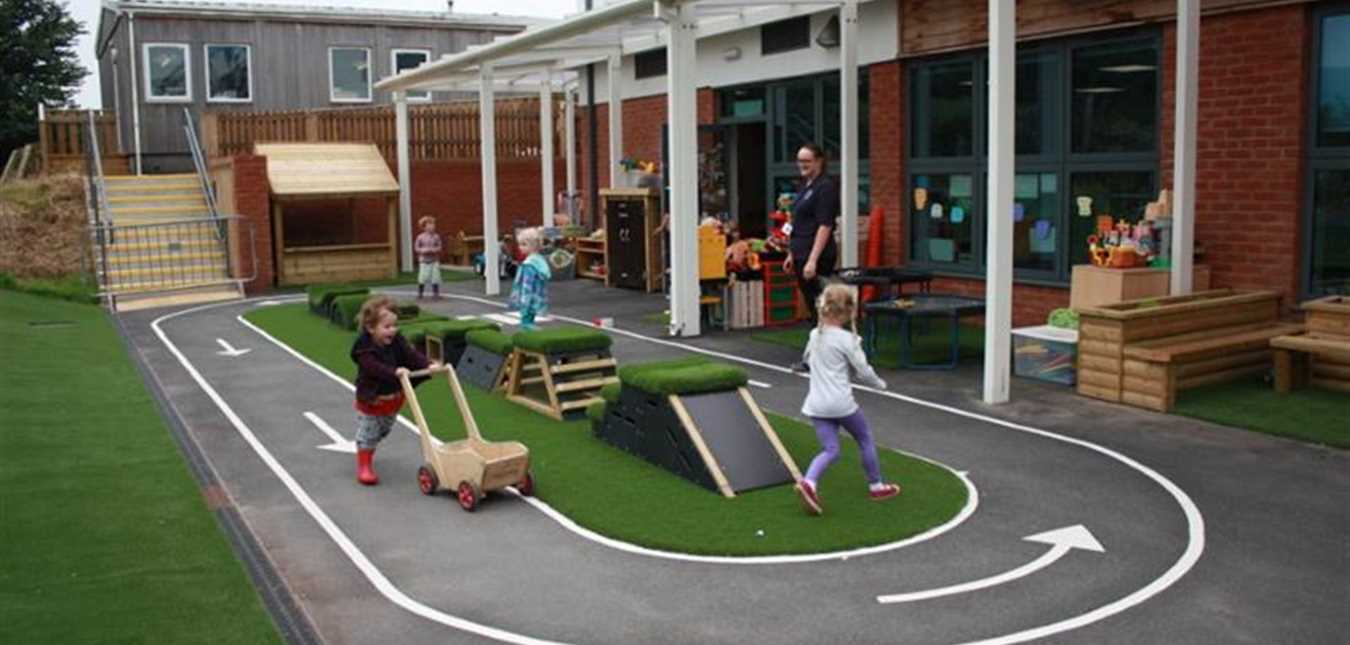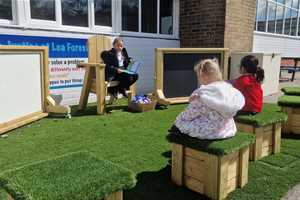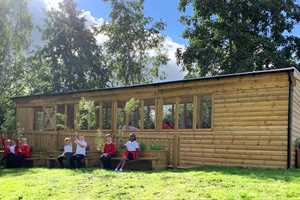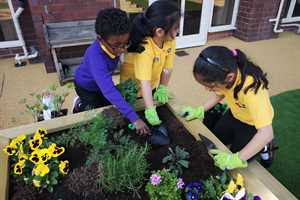
Outdoor Learning and Play
We Highlight Why Outdoor Play Is Important For Toddlers
Do you remember spending hours upon hours outdoors riding bikes, building dens and climbing trees during your childhood years?
The friends that you could spend hours playing imaginative games with or sitting and talking about everything around?
These are the experiences our children are missing…
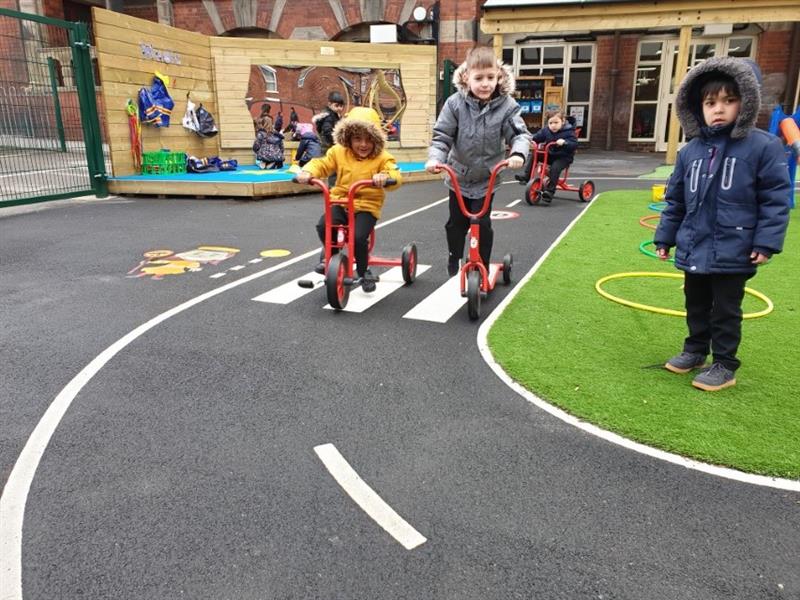
Years ago, there were no screens available to stare at hour after hour, or excuses to hide away from the rain indoors. Young children are opting to spend their time glued to a screen rather than playground outdoors.
Children nowadays need the same experiences and should be outdoors in all weathers, not hiding away from the spitting of rain with their head in a screen.
It is now more important than ever for nurseries and preschools to promote outdoor play and have space outside for children to play due to children opting for technology.
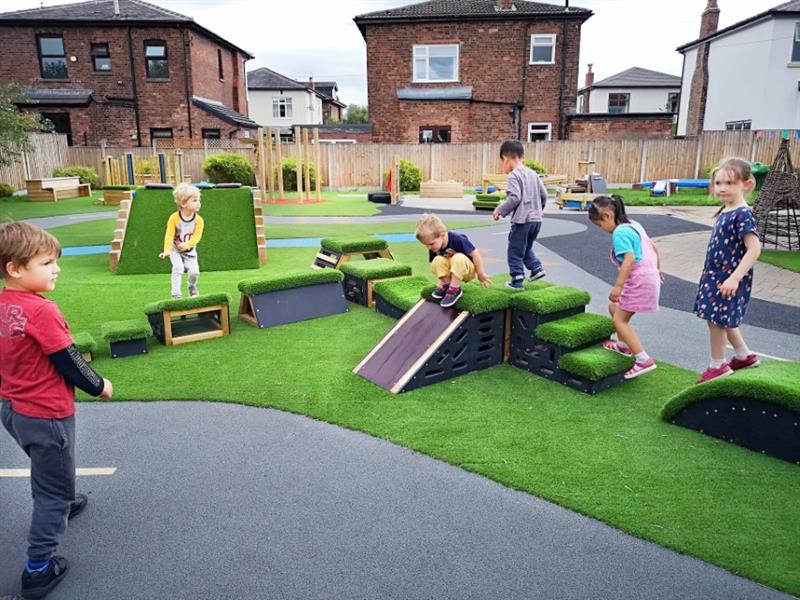
It has been found that toddlers are now spending double the amount of time looking at and playing with technology such as gaming consoles, phones and tablets than playing outdoors. The result of this increased time spent on a screen is a development delay as it negatively affects children’s performance - inside and outside the classroom.
These devices are not only holding back toddler’s development, it is also negatively affecting their creativity and problem solving skills as they are spending less time playing outdoors, making up games and participating in imaginative play.
The knock-on effect of children solitary playing on devices means that it is preventing these young children from having the best start in life. This is because they are constantly missing opportunities for social interactions, physical activities and other experiences which are vital to their overall development.
Consequentially, the children will not have developed the skills they need to begin primary school. By the time these children begin school, they have deficient or delayed communication, language, gross motor skills, social and emotional health development – schools have to work harder to make up and develop these skills.
Some think that a screen is just a screen and keeps toddlers entertained for a few minutes while parents are busy with something else. However it has been found that children are using screens for an average of many hours per week.
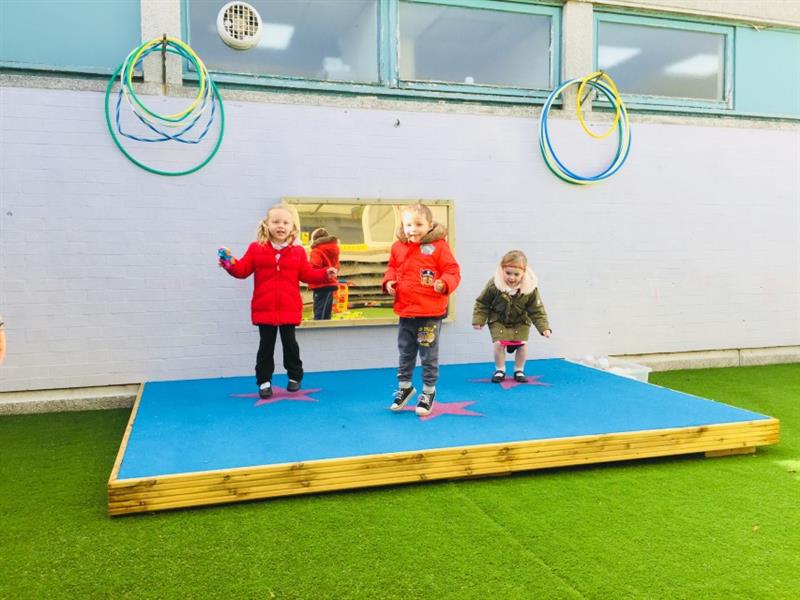
Studies have found that children spend, on average 17 hours at age 2, 25 hours at age 3 and 11 hours at age 5. The highest number of hours spent on a screen is seen during age 3 which are when children need to be developing important skills to ensure they are school ready.
Due to the hours it has been found children spend on screens and the negative affect it has on children’s development, it’s becoming increasingly more important that nurseries and preschool promote outdoor, active play to ensure children get the best start in life and are school ready.
How To Promote Outdoor Play At Your Preschool
Stimulating, visually pleasing and exciting outdoor environments help promote outdoor play. The outdoors must look more thrilling than the game on a screen and include a selection of different play equipment which contribute towards diverse areas of development.
Playhouses and Den Making
Playhouses can encourage role play between toddlers as they make up their own games and develop their creativity through imaginative play. Open ended resources, like playhouses, help children to gain a better understanding of the world while promoting social interactions as they foster relationships.
Social and emotional skills are developed as practitioners provide support and enthusiasm: increasing imaginative development. Encourage mark making and promote early literacy skill development with huge canvases such as the one featured on the back of the playhouse.
Den Making promotes children’s problem solving skills. They have to think of ways to construct the den and how their ideas will work before experimenting with these ideas and fixing any problems that arise.
As they have to work together to construct their den, their communication and language skills develop further through social interactions, cooperation and teamwork. They won’t always have the same ideas meaning that situations requiring compromise arise.
Threading material through smaller holes or tying materials to ensure they won’t fall down develops children dexterity and early literacy skills through these activities that promote fine motor skill development.
Active Play Equipment
Climbing frames or trim trail equipment sparks children’s imaginations as they pretend they are climbing trees or making up other imaginative games – perfect for those who love to run and climb. Active Play Equipment like this develops children’s physical skills as they swing and climb.
Upper and lower body strength, gross and find motor skills advance through play ensuring they are ready for any primary school challenges.
Including equipment similar to slides on your climbing frame encourages children to begin to understand turn taking, as they share the equipment and compromise with one another.
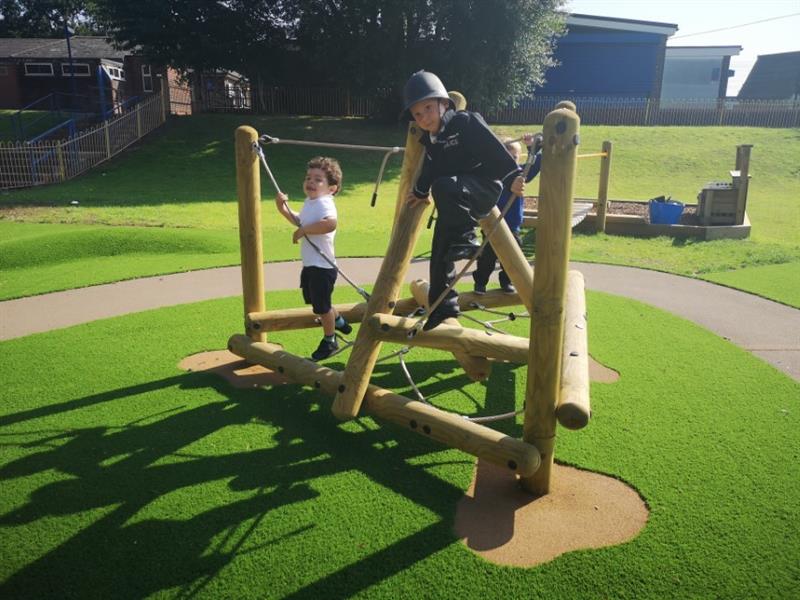
Including roadways into the outdoor environment encourages children to get on their trikes and race around, participating in friendly competition. Providing trikes and a roadway develops children’s cardiovascular fitness and lower body strength as they begin to understand what a healthy lifestyle is and are inspired to lead a healthy lifestyle.
Along with this, a roadway encourages road safety as children begin to understand and use important road safety rules in their outdoor area which then transfer to outside of schools – look both ways before crossing the roadway.
Exciting environments and equipment at nursery or preschool leaves toddlers eager to get out and play rather than sit and stare at a screen while they are at home. If you’d like to transform your nursery or preschool outdoor play environment into a stimulating, exciting play area please Contact Us or view our full range of Outdoor Play Equipment for Nurseries.



